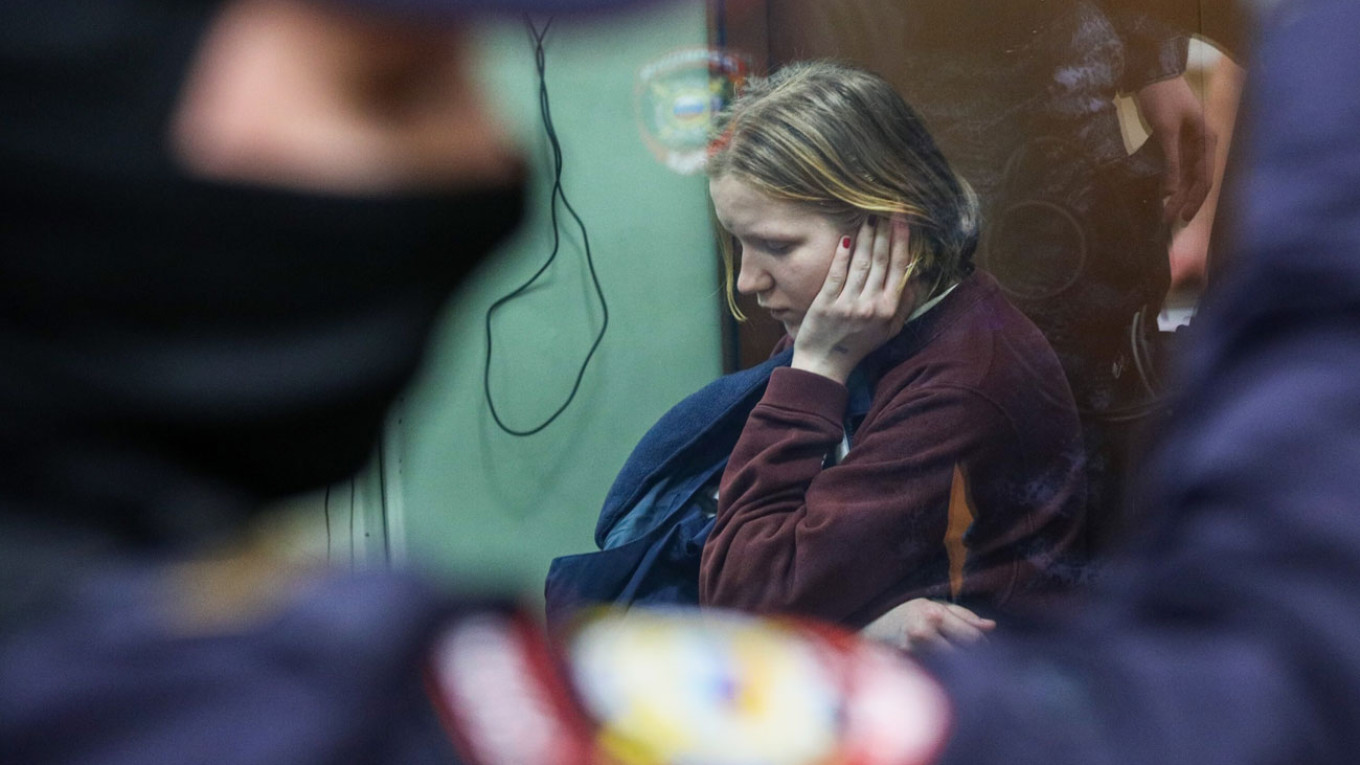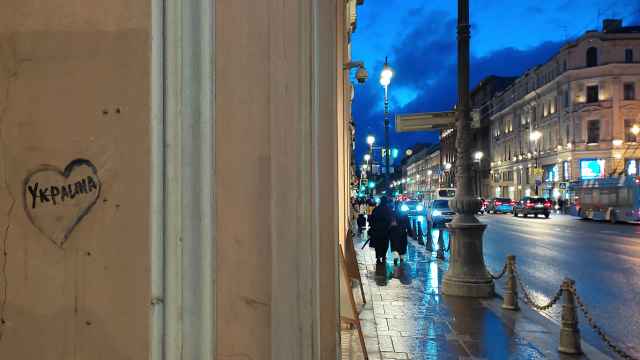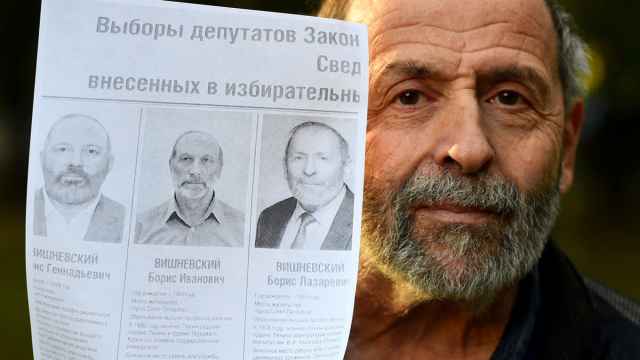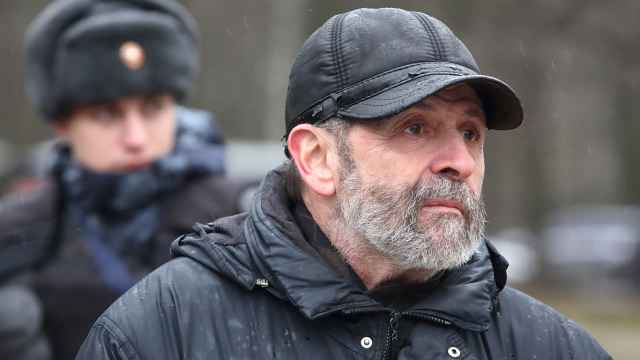Among her feminist-minded and politically active social media followers, petite blonde Daria Trepova was known as Dasha Tykovka (“Dasha Little Pumpkin”).
Few of them expected that Trepova — who appears to have mostly used her Twitter account to discuss relationship problems and other personal issues — would become the main suspect in one of the most high-profile terrorist attacks in recent Russian history.
“Wait, are you f***ing serious? When I saw [the headlines] yesterday that ‘Dasha Tykovka is a murder suspect,’ I thought it was some kind of a meme,” one user wrote hours after Trepova, 26, was arrested in St. Petersburg on terrorism charges.
According to Russian officials, Trepova is responsible for the killing of prominent pro-war blogger Vladlen Tatarsky, a vocal supporter of the invasion of Ukraine, in a bomb blast in a St. Petersburg cafe on April 2.
Witnesses at the public event said that Trepova gifted a golden figurine to Tatarsky — and that the figurine exploded moments later.
Though the murder prompted lengthy eulogies for Tatarsky from top Russian officials — including from President Vladimir Putin, who posthumously awarded the blogger with the Order of Courage — little is known about Trepova’s biography or her possible motives for carrying out such an attack.
Trepova’s lawyer Daniil Berman declined to provide any information about his client when contacted by The Moscow Times.
Born in St. Petersburg, Trepova finished high school in the nearby town of Pushkin, a popular tourist destination and home to two of the Romanov dynasty’s sumptuous summer palaces.
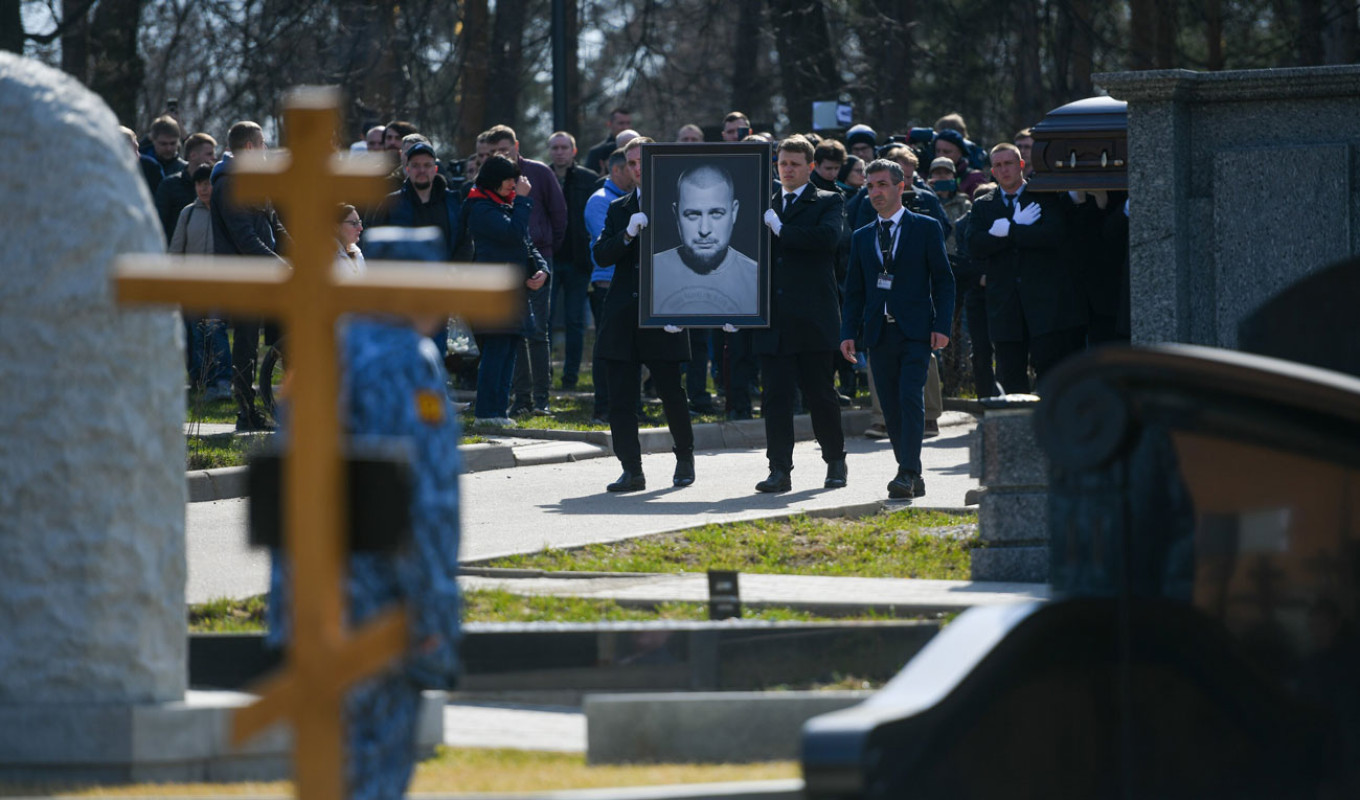
After graduation, she studied at St. Petersburg State University but was expelled in 2019. Trepova was studying medicine, according to a friend cited by the independent news outlet Agentstvo, though other reports suggested she was pursuing an economics degree.
The university’s press service declined to confirm any further details about Trepova when contacted last week by The Moscow Times.
Trepova subsequently worked at a vintage clothing store in the city but left the job a month before the assassination and moved to Moscow, according to Agentstvo.
While Trepova is believed to have been a well-known figure among St. Petersburg feminists and opposition activists, little is known about her actual political views or projects in which she was involved.
The only public record of her activism are brief details about her detention at a February 2022 anti-war rally in St. Petersburg published by human rights organization OVD-Info.
Agentstvo also identified Trepova as being among the thousands who were arrested at rallies in support of Kremlin critic Alexei Navalny in early 2021.
While Russian officials claimed Trepova was an “active supporter” of Navalny, representatives of the jailed opposition leader have denied any links with Trepova or to the attack that killed Tatarsky.
There has been much debate about whether Trepova could have been the initiator of the attack, or merely used by a third party to deliver the explosives.
Eyewitness accounts and video footage from before the explosion and in its immediate aftermath suggest Trepova may not have known what was inside the figurine. Not only was she seen joking with Tatarsky about the figurine containing a bomb, but she agreed to sit next to the blogger and did not appear to be in a hurry to leave after the blast.
“Dasha is generally not the kind of person who could murder someone. She actually was set up and used,” Dmitry Rylov, who was identified as Trepova’s husband in media reporting, told news outlet The Insider last week.
“All I knew is that Daria needed to… hand over some kind of gift. I didn’t even know which one exactly… it wasn’t something that was supposed to explode,” he added.
But Rylov has apparently been living outside Russia for a long time and knew little about Trepova’s activities, according to a statement by the Libertarian Party of Russia of which Rylov is a member.
"I know that she had a husband, but as far as I know, the wedding was part of a joke and they did not keep in touch," one of Trepova's friends told Agentstvo.
Little can be gleaned from Trepova’s Twitter account, which was deleted days before Tatarsky’s murder. The remaining traces of her online life suggest that she rarely used social media to discuss politics.
Yet Twitter was where Trepova allegedly connected with Kyiv-based Russian journalist and political activist Roman Popkov.
Popkov, a former leader of the radical leftist National Bolshevik Party — which is banned in Russia — writes articles about Russia’s underground anti-war resistance and has been identified by some Kremlin-linked media as Trepova’s alleged “recruiter.”
According to some Russian media reports, the Ukraine-based journalist became close with Trepova while mentoring her in journalism and told Trepova to give the figurine to Tatarsky.
“I gave no orders to Dasha and didn’t introduce her to any Ukrainian agents,” Popkov wrote on Telegram last week shortly after Trepova’s arrest.
“I knew Dasha from social media… We chatted sometimes. She was interested in journalism,” wrote Popkov, who added that Tatarsky had “got what he deserved.”
In a short clip of Trepova released last week by Russian police, she can be seen admitting that she “brought the statuette [to the bar] where it exploded.”
But she does not say whether she knew there was a bomb inside, or reveal if someone had given her the statuette.
Russian officials have said that the young woman followed the “orders of persons acting from the territory of Ukraine,” though this version of events has been disputed by Kyiv.
Trepova’s trial, which is expected to be held behind closed doors, is unlikely to shed any further light on her identity or motivations.
If found guilty on charges of terrorism and possessing an explosive device, she could be sentenced to up to 30 years in prison.
A Message from The Moscow Times:
Dear readers,
We are facing unprecedented challenges. Russia's Prosecutor General's Office has designated The Moscow Times as an "undesirable" organization, criminalizing our work and putting our staff at risk of prosecution. This follows our earlier unjust labeling as a "foreign agent."
These actions are direct attempts to silence independent journalism in Russia. The authorities claim our work "discredits the decisions of the Russian leadership." We see things differently: we strive to provide accurate, unbiased reporting on Russia.
We, the journalists of The Moscow Times, refuse to be silenced. But to continue our work, we need your help.
Your support, no matter how small, makes a world of difference. If you can, please support us monthly starting from just $2. It's quick to set up, and every contribution makes a significant impact.
By supporting The Moscow Times, you're defending open, independent journalism in the face of repression. Thank you for standing with us.
Remind me later.


